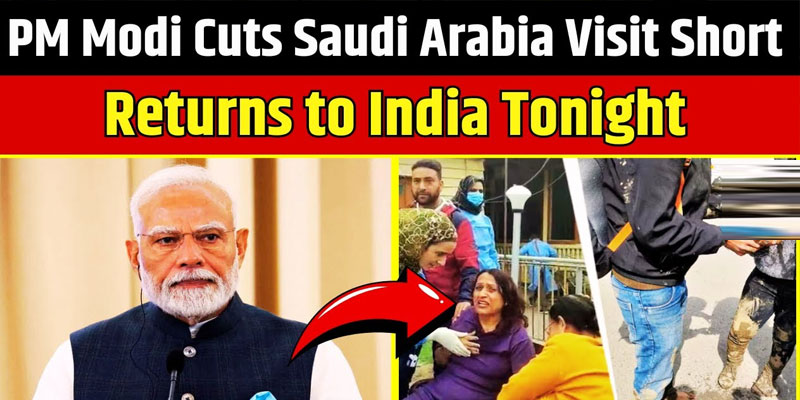A Rally Turned Resolve: PM Modi’s Powerful Words in Bihar
Standing before a solemn crowd in Bihar, Prime Minister Narendra Modi delivered one of his most impassioned addresses yet, condemning the brutal terror attack in Pahalgam that claimed the lives of 26 innocent civilians—most of them tourists. Visibly emotional yet unyielding, PM Modi declared, “India will identify, track and punish every terrorist and their patrons—beyond their imagination.”
As the nation reeled in grief, Modi’s words echoed like a clarion call: “The country is in pain… but let the enemies of peace know—India’s spirit will never be broken by terrorism. We will pursue the perpetrators to the ends of the Earth.” The Prime Minister’s message was not just a reaction, but a resolve—one rooted in justice and national dignity.
The Attack in Pahalgam: Horror in the Valley
On April 22, terrorists opened fire on a group of tourists in South Kashmir’s Pahalgam, killing 26 people in a chilling reminder of the region’s fragility. Intelligence reports suggest that four to five heavily armed gunmen, believed to be from Pakistan, executed the ambush.
The attack drew parallels with past atrocities—most notably the Pulwama attack of 2019, which had prompted India’s Balakot airstrike targeting a Jaish-e-Mohammed camp. Now, speculation is rife that Pakistan fears a similar reprisal in light of India’s recent military posture and assertive diplomacy.
A Nation Responds: From Diplomacy to Defence
In the wake of the attack, PM Modi convened a high-level Cabinet Committee on Security (CCS) meeting. One of the major decisions taken was the downgrading of diplomatic ties with Pakistan. As announced by Foreign Secretary Vikram Misri, the number of personnel at both Indian and Pakistani High Commissions will be reduced from 55 to 30 by May 1.
The move signals a clear message: India will isolate those who shelter terrorism—politically, economically, and diplomatically.
Meanwhile, Home Minister Amit Shah immediately flew to Srinagar, overseeing the tightening of security grids in Jammu & Kashmir. “Bharat will not bend to terror. The culprits will be punished,” Shah asserted.
Defence Minister Rajnath Singh further added that a strong response was imminent, not just to the perpetrators, but also to “those behind the curtain who planned this attack from afar.”
Global Ripples: International Community Watches Closely
The Pahalgam tragedy has also triggered global responses. Several countries have condemned the attack, urging Pakistan to act against terror networks operating from its soil. The United States, France, Japan, and the EU have all extended condolences and backed India’s right to defend itself.
While there is still international pressure for restraint, many analysts argue that India’s calibrated assertiveness since Balakot has reshaped global expectations, making it increasingly difficult for nations to ignore the source of such cross-border terrorism.
A Line Drawn in Stone
The Pahalgam attack is not just another blot on Kashmir’s troubled past—it is a turning point, both strategically and emotionally. PM Modi’s message from Bihar was not merely about vengeance but about national resolve, sovereignty, and unity.
Terrorism cannot and will not define India’s future. In PM Modi’s words, “Every terrorist and their patron will pay.” As the government aligns military readiness with diplomatic retaliation, it is clear that India will no longer tolerate proxies or provocateurs.
This isn’t just a response. It’s a doctrine—etched in the ashes of Pahalgam and fortified by the will of a billion people.
(With inputs from agencies)





